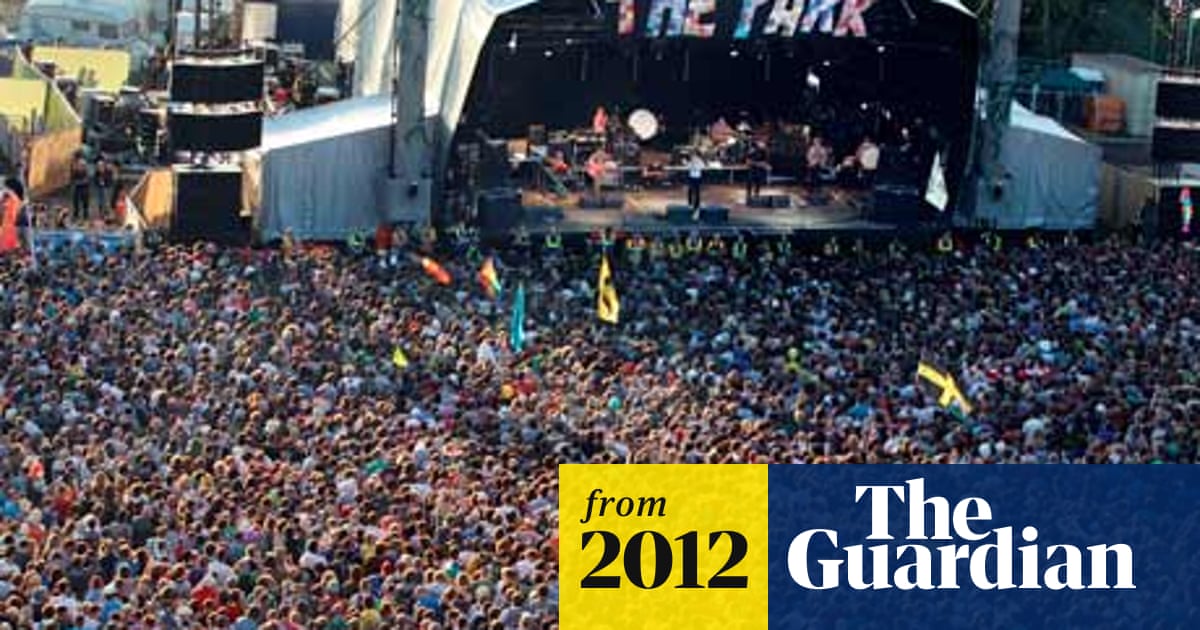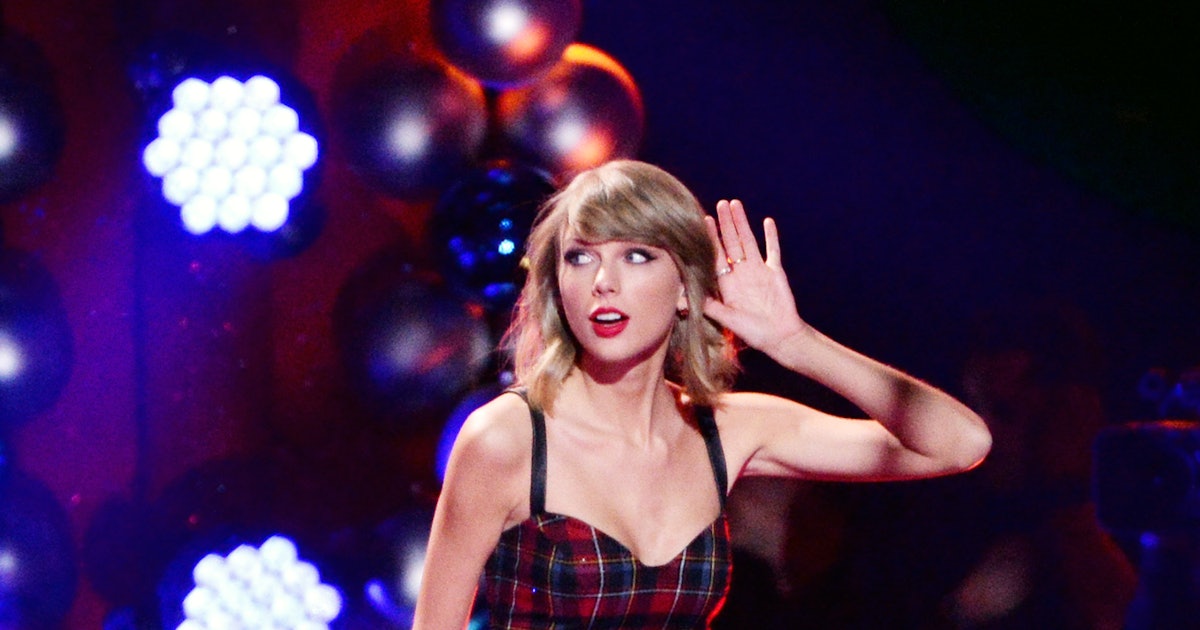To be fair, at the time, it was Best Hard Rock/Metal, not just Metal, so not as ridiculous as it first sounds. Not to say …AJFA shouldn’t still have won.
It was very much a Hard Rock record.
To be fair, at the time, it was Best Hard Rock/Metal, not just Metal, so not as ridiculous as it first sounds. Not to say …AJFA shouldn’t still have won.
It was very much a Hard Rock record.
I think “killing” is going too far but certainly, as others have mentioned the whole 60+ year back catalogue of great music presents a huge selection that the current releases have to compete against.
Not really surprising that music in the current 5 year era might struggle to monopolise people’s ears. I should imagine that classical music composed in the last 5 years faces even greater issues for much the same reason.
My teenage kids and their friends seem pretty uninterested in current music. They have spotify playlists and what do I see on there? All sorts from across the decades and very little from the last 5 years.
But of course this is a manufactured problem. It doesn’t matter that most of the music from today is dross, most music from any era was dross.
It has never been easier to record and publish music and anything worth listening to will stand the test of time, just as it always has.
What does that even mean?
The assumption may be that anything that you have heard 10000 times before has subtly rewired your brain.
Compare, say, this
with this
A lot of music is a product of and meant for its time.
Protest songs are great examples of this. The tune may be memorable but the events described may not be as well-recalled.
A lot of the content of rap/hip hop is current news, people, trends, etc. Many of the references in older rap songs are to athletes or TV shows/characters that young people today will know nothing about. “I got mad hits like I was Rod Carew” or “If I played guitar I’d be Jimmy Page/The girlies I like are underage” (both from the Beastie Boys) elicited a “ddamn that was a clever line” to people back in the day but will be meaningless to a young person today unless and until they bother to look them up.
So fresher doesn’t mean better but it often does mean more relatable.
Hell, later this week I’m seeing Ghost perform live in a sports arena. Has your average mid-40s music critic even heard of Ghost?
The Swedish Metal band? (Cerice, etc.?)
Thanks for the heads-up, I didn’t know they were touring. They’ll be here in my area in April, so I’ll be able to catch the show!
Is there a prevailing style to today’s music? Do we have an equivalent to Disco / New Wave / Grunge right now? I don’t think we do, and that makes things hard to categorize, and hard to cater to.
The prevailing style for pop music seems to be a sort of overproduced homogenous blend of vapid lyrics sung by a female (or male falsetto) vocalist over electronic instrumentation and a hip-hop trap beat that you can dance to (possibly with an EDM remix). All the songs in this playlist sound essentially the same to my ear. Which is probably the point.
To me, there seems to be less distinction between specific genres of rock, dance, hip-hop/rap, pop, etc than there was in previous decades. I think this has actually been scientifically proven.
The prevailing style for pop music seems to be a sort of overproduced homogenous blend of vapid lyrics sung by a female (or male falsetto) vocalist over electronic instrumentation and a hip-hop trap beat that you can dance to (possibly with an EDM remix). All the songs in this playlist sound essentially the same to my ear. Which is probably the point.
I mean, the OK Boomer thing is played out by now, but holy crap. You sound like my grandfather listening to rock and roll – “It all sounds the same, and all they do is scream into the mic.”
I guess a lot of people sound like your grandfather…

Pop music is too loud and melodies have become more similar, according to a study of songs from the past 50 years conducted by Spanish scientists

Anyone who listens to pop radio regularly has probably been hit with this realization at one point or another – a ton of pop music sounds very similar. It seems like grandpa logic, but a growing body of research confirms what we all suspect: Pop…
I bet you could do the same analysis with grunge or hard rock or metal.
You probably could. However I would argue that the Top 40, from say…1992 represented a wider cross section of more distinct musical genres. Nirvana, Guns & Roses, Boys II Men, Michael Jackson, En Vogue, Toad the Wet Sprocket, Eric Clapton, etc.
And anecdotally, it’s something I’ve noticed with my own music collection with bands I track over the years. Bands that even a few years ago I would keep in separate playlists (i.e. EDM, Hip-Hop, Indie Rock, Pop Punk) seem like they are similar-sounding enough that there isn’t really a point.
Although, in fairness, we thought Pop music sucked back then too. What makes the Billboard Top ### lists tends to get the edges sanded off so it all sounds kind of similar anyway. I just think it’s easier to do these days with modern data mining and search algorithms.
I mean, the OK Boomer thing is played out by now, but holy crap. You sound like my grandfather listening to rock and roll – “It all sounds the same, and all they do is scream into the mic.”
Is there some kind of scientific law that says that the variety of music in any given point in time has to be identical to the variety of music at every other given point in time, like a Law of Musical Equilibrium or something? And if not, doesn’t that mean that some periods, by necessity, have less musical variety than other periods? And if that’s the case, isn’t there a chance that we’re living in one of those periods?
Sure, could be. I mean, the Classical period? Yawn. They always mixed the woodwinds too high, and introducing a gong was a mistake in my book. (I have no idea if any of that really applies to the Classical period)
It’s just that it seems to be the same complaint about music all the time, at least since the 70s.
It has never been more easy for folks to create art. It has never been more easy to experience new art. New music thrives in every corner.
It has never been easier to record and publish music and anything worth listening to will stand the test of time, just as it always has.
How long can the lottery stay open if no one ever wins the jackpot? To make the equivalent of $30,000 a year you need 10,000,000 Spotify streams per year. Music was never a guarantee, and the vast majority of musicians fail, but you still need a few jackpots.
Warner music and IHeartRadio are owned by the same parent company. They just spent a quarter of a billion on Bowie’s rights.
Sony owns Sony Pictures, Sony music, Columbia records, Epic, RCA, Playstation. They spent a half of a billion of Springsteen’s rights.
Universal Music has the Stones catalogue, Capitol, EMI, Eagle Rock entertainment. They are owned by Vivendi. Vivendi also owns 20% of NBC Universal, Decca, Geffon, Motown and assorted video game companies.
Are you going to hear all this new music on the radio? in a video game? in a movie? on a commercial? Where’s the money for the new artists?
The illusion of choice.
Protest songs are great examples of this. The tune may be memorable but the events described may not be as well-recalled.
I remain amused by the irony that breaking Tom Paxton’s guitar may be the only reason anyone at all even remembers Republic Airlines anymore.
A lot of the content of rap/hip hop is current news, people, trends, etc. Many of the references in older rap songs are to athletes or TV shows/characters that young people today will know nothing about. “I got mad hits like I was Rod Carew” or “If I played guitar I’d be Jimmy Page/The girlies I like are underage” (both from the Beastie Boys) elicited a “ddamn that was a clever line” to people back in the day but will be meaningless to a young person today unless and until they bother to look them up.
I sometimes wonder if Andre 3000 regrets the line “Shake it like a Polaroid picture”.
How long can the lottery stay open if no one ever wins the jackpot? To make the equivalent of $30,000 a year you need 10,000,000 Spotify streams per year. Music was never a guarantee, and the vast majority of musicians fail, but you still need a few jackpots.
I’m not so sure. The poetry lottery dried up quite some time ago, and there are still people writing poetry. Similarly, most musicians aren’t really doing it for the money. I had a music teacher early on that asked me if I was in it for the money. If so, a nice HVAC course would probably be a more sure path to money. He’d made an OK living at it, but there were easier ways.
Really, most musicians are going to make music no matter if you hear it or not. Creating it solves an itch in and of itself. “Everything is Free” is a pretty good take on it:
Every day I wake up
I’m in a song
But I don’t need to run around
I’ll just stay home
And sing a little love song
My love, myself
If there’s something that you want to hear
You can sing it yourselfCause everything is free now
That what I said
No one’s got to listen to
The words in my head
Someone hit the big score
But I figured it out
And I’m gonna do it anyway
Even if doesn’t pay
Radio?
What does that even mean?
Music or music styles someone hasn’t heard before.
However I would argue that the Top 40, from say…1992 represented a wider cross section of more distinct musical genres. Nirvana, Guns & Roses, Boys II Men, Michael Jackson, En Vogue, Toad the Wet Sprocket, Eric Clapton, etc.
Who cares?
And if that’s the case, isn’t there a chance that we’re living in one of those periods?
There’s also a chance we have greater musical diversity than ever before. We certainly have easy access to greater diversity than ever.